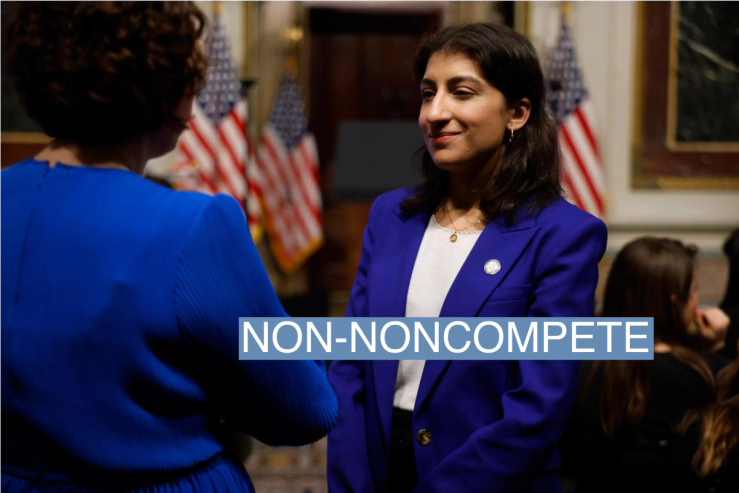The News
The US Federal Trade Commission voted Tuesday to ban noncompete agreements for almost all American workers, ruling that they unfairly block employees from changing jobs and restrict competition.
Noncompetes typically prevent workers from leaving their company for a competitor or founding a competing business. The Biden administration has argued that these agreements stifle entrepreneurship, harming both workers and the US economy writ large.
About one in five American workers are bound by noncompetes, according to the FTC. The commission estimated that if the agreements were banned, allowing more workers to leave jobs and earn more money, the earnings of the US workforce could increase by up to $296 billion per year.
“The freedom to change jobs is core to economic liberty and to a competitive, thriving economy,” FTC Chair Lina Khan said in a statement when the proposed rule was initially introduced.
SIGNALS
Businesses say noncompetes are vital to protect trade secrets
The US Chamber of Commerce and other business groups oppose a ban on noncompetes, saying the agreements help both workers and companies by protecting trade secrets, which allows businesses to invest more in training their workforce. The chamber argued that under a ban, “companies may be less willing to pour large amounts of time and money into research and development,” because they may fear employees will take that knowledge to a competitor, NPR reported.
Noncompetes were once used to keep high-level executives from “jumping ship to rivals and taking insider knowledge with them,” Axios reported, but they’re now common even for low-wage workers who have little to no access to trade secrets. Cases litigated over the agreements have involved pharmaceutical workers, janitors, and even yoga studios.
Chamber of Commerce plans to sue, threatening FTC’s authority
The US Chamber of Commerce has said it will sue to overturn the rule, arguing that the FTC overstepped its authority and opened up “a Pandora’s box where this commission or future commissions could be literally micromanaging every aspect of the economy.”
But if the courts step in to roll back the ban, they could also restrict the FTC’s rulemaking authority more broadly, making it difficult for the commission to curb other practices it deems harmful to competition. While a legal opinion could restrict the commission’s rulemaking authority, it would “at least give the agency clarity on its own powers,” The American Prospect wrote.



